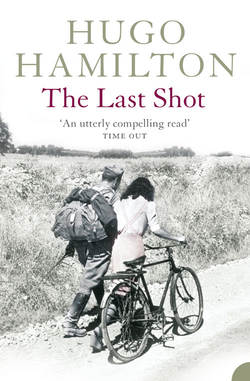Читать книгу The Last Shot - Hugo Hamilton - Страница 11
7
ОглавлениеDuring the afternoon, the people of Laun began to reclaim their town. As soon as the last of the German patrols had withdrawn back to the garrison, they gathered in the streets quietly, in small groups. Children came out to play on the square beneath the statue of the Czech martyr Johann Huss, which had ironically been allowed to stay untouched during the war.
Rumours went around about the uprising in Prague. About the imminent German capitulation. Men went up to the post office and began to throw stamps and registration forms into the street with a mixture of anger and joy. They had been given instructions by the National Committee at the U Somolu pub to repossess the institutions of the state. The officials who had been working at the post office up to then joined in, throwing documents out through the windows where they fluttered and chased each other in the street. Then the post office was closed for business.
The children who had come to watch this spectacle went back to the square to play, chasing, trying to take a scarf off each other. There were three girls and a boy; along with a dog who was trying to join in with their game. An over-friendly town dog who had always tilted his head and followed every inhabitant through the streets with equal curiosity, occasionally receiving a pat on the head from a German soldier, or the German woman in the red coat, coming from Mass. He was everybody’s friend.
The idiocy of impartiality.
The dog chased the children around the square, keeping his eyes on the scarf, inevitably tearing at one of the girls’ clothes instead of the scarf. The game was stopped and one of the older girls got cross, clouting him over the head. The girl whose dress was caught in the dog’s mouth went on giggling as though she had been caught out as part of the game. When the dog eventually let go, the children tried to chase him away, but he stayed with them, at a distance, until they began to chase each other again and forgot that he was a dog. He was one of them.
Outside the pub U Somolu, where the National Committee was still in session, still negotiating with the Germans, a crowd, mainly men, had gathered to celebrate. They wanted to add voice to victory. They were told the pub was closed. It was too early to celebrate. Jaroslav Süssmerlich came out in person to explain that, if anything, things were going badly. The latest news from Prague was that German reinforcements were regaining control of the capital. The men outside announced their readiness to join the uprising by attacking the garrison. But the garrison held Czech hostages. An attack was impossible. Süssmerlich gave his men something else to do.
The people of the town went away and began to remove the German street signs, replacing them with rough, hastily painted Czech names on wood. They had reclaimed their town. Above the town, the sky was a celebration. From time to time, sunlight broke out over the hills, over the roof-tops of Laun, lighting up the calm columns of smoke like blue angels. There were no cars in Laun. Nobody owned very much. All they owned was their place in the world.
Some of the people went into the church to give thanks to God. Others went home to listen to the radio in groups, waiting for the Russian liberation. Others cooked food, fecklessly using up ingredients they might have rationed carefully for months up to then.
Before nightfall, a young couple arrived at the door of the pub asking to speak to the leader of the National Committee. They were told to go away. But they insisted.
‘Just for one minute,’ the girl said hopefully.
When they wouldn’t go away, Süssmerlich finally agreed to speak to them. They had already received permission from their parents to marry. They had postponed the wedding for weeks, knowing it was wiser to wait for the end of the war. They had obtained permission from the priest in the town. All they needed now was permission from the National Committee. They wanted to marry the following morning.
Süssmerlich became angry.
‘Can’t you control your passions? The war is not over yet.’
But the intending couple returned some time later accompanied by the priest. The bride appealed with her eyes. The priest spoke on their behalf and explained that the couple wanted to get married on the day Czechoslovakia was liberated. On VE day.
Süssmerlich softened. Who could fail to understand such a request? He gave his permission and wished them luck in their lives. The couple thanked him. The priest blessed the revolution.
